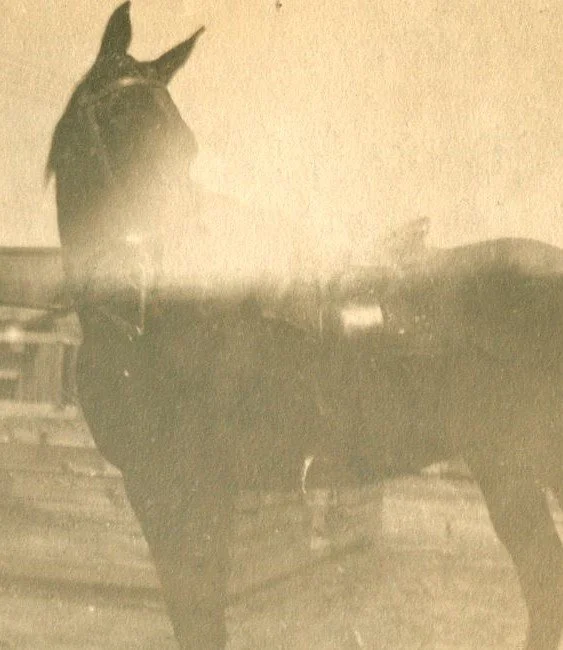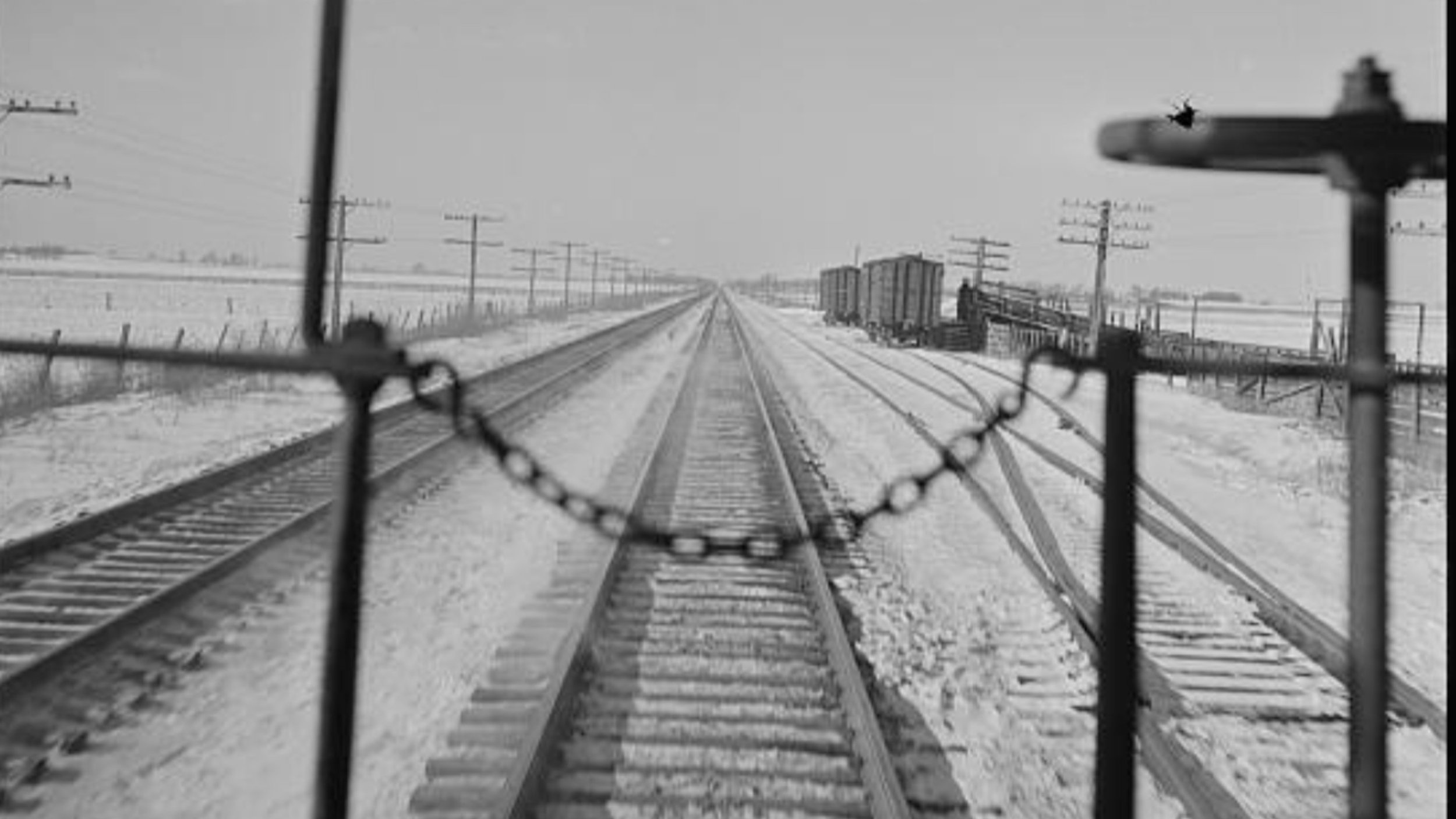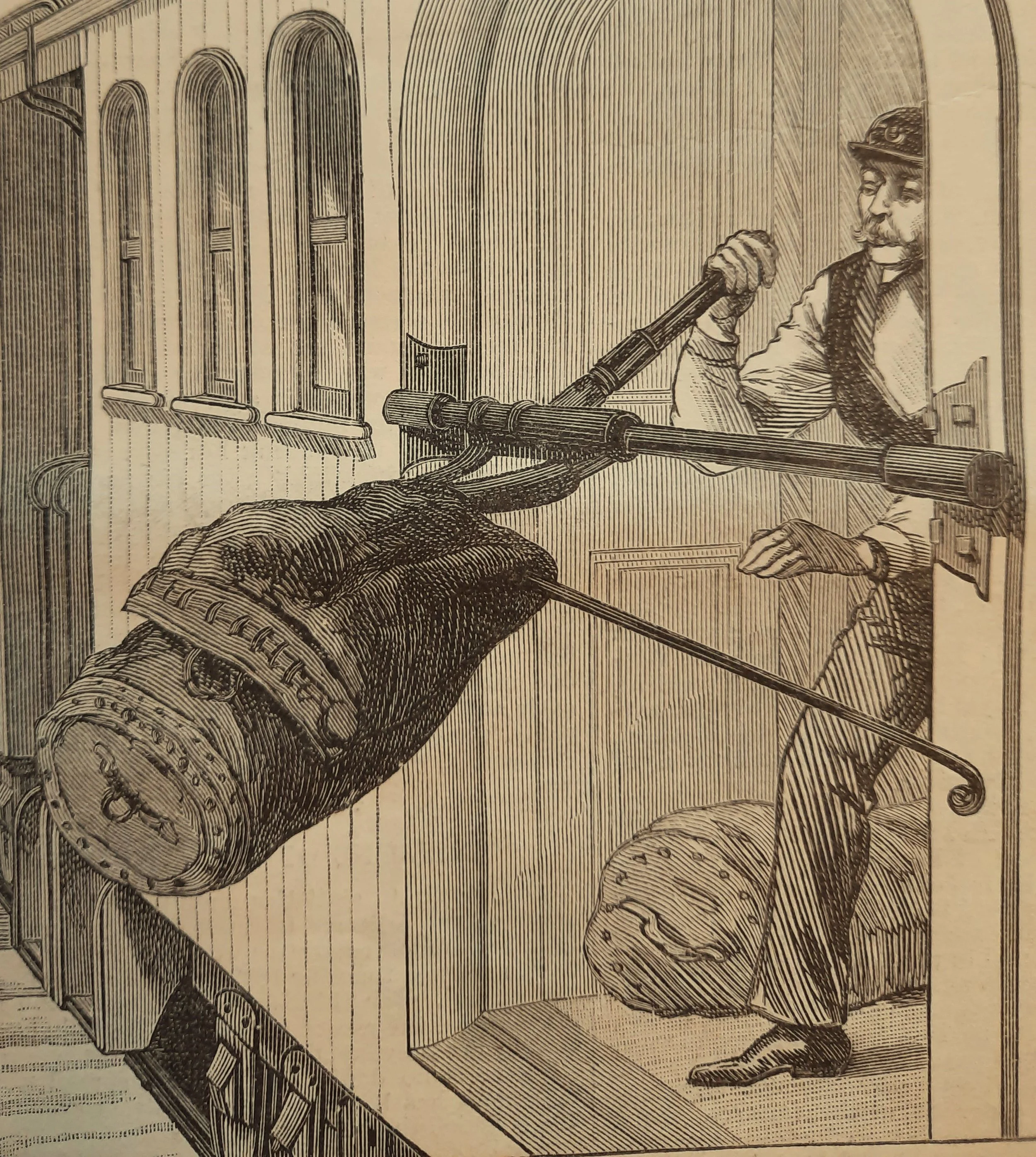

No. 64
Miss Dawson was now your mother’s sister-in-law, but the letters had a frosty gloss or duplicity between them, as these things happen, because a downturn in correspondence shows up in every relationship from afar, your mother said, and I agree, for it cannot be sustained if only for the demands of the chores in the garden and porch steps, which need sweeping. But let not that happen to us, okay, Stewart?

No. 63
Your mother taught me that daily here is the task: “Minnie,” she used to say, “just wrap the gift. They can always return it, but our part is over.” How anyone takes it or not is of no concern to us, she used to say. How many gifts from her was I in charge of wrapping, and I, without bitterness, perhaps finally now without bitterness, I can accept this to be my last gift as we part—the end of the line is near for me.

No. 62
The steam locomotive was in front of the postal car. Occasionally some of its smoke entered the car, if there was a twist in the winds, which was a black blessing, I suppose, for it reminded me to cover my eyes and nose, which hid my face from every angle, for I still worried my boss could see though the windows and I would be found out, even though we were far from that place, I imagined the cloud was voicing its disapproval ever-over me, crawling under my hat, harassing my scalp and the base of my neck.

No. 61
Just before we turned on the landing to descend the open stairs, I held onto the wood to keep my balance, and clinging to that wood, I felt a grounding, but of course, we were over that balcony above the lunch tables and piano, which were empty of life as I saw in a blur a fight scene on the porch kick up dust and the crowd gathered there. Then I remembered! And exclaimed, “Mother!”


No. 59
There was a second grace—through these letters I was able to get to know her, too, and she asked me about my kin, and about the veterans in my family, and how I came to America, and our shared love of the Virgin Mary, and for liturgy and we began a sisterhood, also, with affection for our arrangements, washing, and routines.

No. 58
Charles jumped a bit towards me and patted my shoulder, dragged me running up and down the spiral steps, above the kitchen, showing me my quarters, nearly causing me to get sick, and then he took off for an errand. I turned my body, but kept my feet in place, hoping to follow him, ducking a bit to see out the window, which still had no draperies. I saw him helping the movers. They acted like they knew him and knew him well, which comforted me, and I smiled from that moment on.




No. 54
Ducking with ease under another flying suitcase, she simultaneously stepped over a small mound of canvas bags and walked to the mail car. Railway postal clerks were switching off duty. She walked out even further, now stepping into the yard with the row of catchers. Looked up at the mounted crane, at this, for this hook the men use to catch the sack of mail.

No. 53
Charles didn’t care about the stupid glittery stuff but took offense over lost money. So, the chase was on. When Charles reached for the purse, J. P. hurled it near the edge of the pond and took off. Charles was going to get wet for this girl. He collected what he could and paused when, as the sun hit the play glass and water, the boogers sparkled, with one of them giving out a sort of rainbow with its cut.

No. 52
Charles told me that growing up as the youngest child provided a view of a kind of theater. He had a terrific view and never had to buy a ticket. Sometimes, he said, they didn’t even know he was there. From where he sat, he learned which tone worked on their faces and which jab caused a switch to be thrown.


No. 50
Your uncle Charles told me that Val was to go along, and Henry. Of course, his sisters wouldn't dare talk of it or think about going, for they were still at that time not even allowed to read certain sections of the newspapers. Because of his age, only four, Charles was only slightly aware of the anxiety, the knotted feelings, the stuttering during grace, and an urgency for the males to march out without emotion.

No. 49
I imagined Charles being happy to toss then, as he was happy to toss a roll later, without fail, when he visited us. In doing this, he gave me hot morsels, and I took off with them not as if they were table scraps of bread, but sparks. His touch and love for me turned everything about him into fireworks in my head. And as he talked about his youth, I sat at the table for hours laying on the butter.

No. 48
As he was hunched over the dining room table with Val, admiring the flag, she patted him on the back and swung him around. With urgency, she cupped her hands around his forehead, neck, and chin, tugging on his lower eye lids, and announced that the show-and-tell was over. She led him to the sick room.

No. 47
But this time it was his wife, Mary Ann, who determined that the older children needed something extra special this Christmas, because the pathetic presents were going to be on the low-down this year, such as a story while looking up at the sky and finding that star of wonder, star of beauty bright. Intuition was now the new law of the land for this growing family, and your mother picked up on how to be the most charming, most bright, when the family needed it most.

No. 46
And how was I to know that the daughter I named after Mother was to have the same figure, style, and attachment, and also, the same type of servile fear, if mostly contained, of how the jug was more of a vase than a common pitcher, depending on the company. And who might determine if or how the table settings were accurately measured. The placement of the containers, trays, and silverware in the cabinets, or the elaborate woodwork of the trim on the cupboards…and how exhausting it was for those who said it didn't matter.

